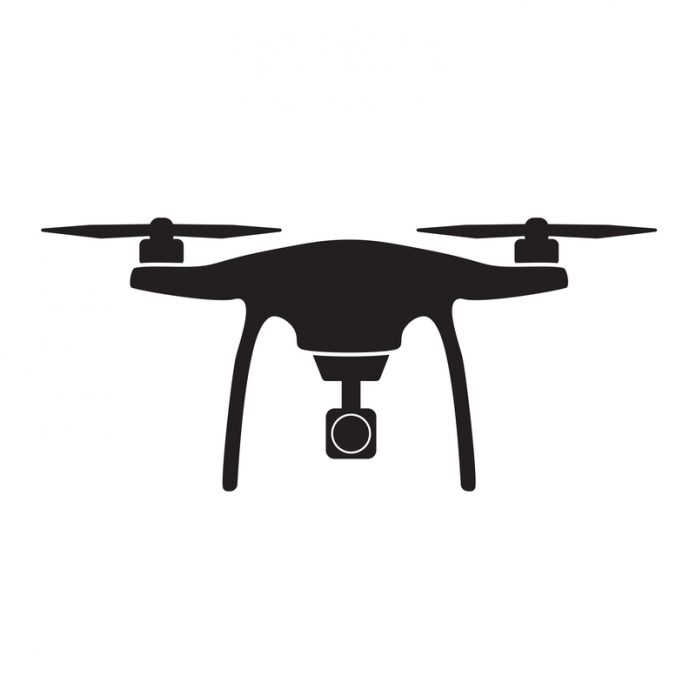Dr Chris Wyatt, Research Fellow at the School of Government and Society at the University of Birmingham discusses a recent report that looks at the challenges and opportunities drones could bring the UK
With the introduction of new, modern technologies, the question is often asked of their benefits weighed against the costs if deployment and use. Drones, or Remotely Piloted Aircraft (RPA) are no different and the last few years have seen an intense debate on the merits of their use.
The sixth University of Birmingham Policy Commission was established to address the issue of Remotely Piloted Aircraft (RPA) and their benefits for security within the UK and potentially worldwide, Under the Chairmanship of Sir David Omand, the Commission launched its report at the Royal United Services Institute in October 2014.
The report concluded that RPA technology, both civil and military, under proper legal regulation, can continue to deliver ‘significant benefits’ for the UK’s national security policy and economy in the coming decades.
The Commission took the view that, for these gains to be realised fully, the UK government, and especially the Ministry of Defence (MoD), should do more to reach out to the public over what the Commission sees as the globally inevitable use of drones in armed conflict and in domestic surveillance. RPA use will become an integral part of Britain’s aerospace capability, providing both advanced surveillance and precision weapons delivery. They can support UK forces deployed overseas, as in Afghanistan, or help prevent mass atrocities, as with the British government’s decision to deploy the RAF Reaper fleet against the Islamic State (ISIS).
The report examined the distinctive and unavoidable choices for the United Kingdom over a crucial emerging technology and set out the under-appreciated legal distinctions between British practice and the US government’s cross-border counter-terrorism strikes which dominate and distort public debate.
However, there are challenges regarding the use of RPA. These consist of 3 main obstacles affecting the UK government’s use of drones that must be overcome: gaining public understanding and acceptance of the legal and ethical soundness of the practice; allaying fears over the potential development of Lethal Autonomous Weapons Systems (LAWS); and safeguarding British airspace and the privacy of British citizens if drones are to be increasingly used for domestic surveillance and security.
The Commission concluded that the current and emerging generation of RPA pose no greater ethical challenges than those already involved in decisions to use any other type of UK military asset. The report showed clearly that the UK has operated its armed Reapers in Afghanistan according to the same exceptionally strict Rules of Engagement (no weapon should be discharged unless there is ‘zero expectation of civilian casualties’) that it applies to manned aircraft.
But the Commission added its voice to the wider coalition of international opinion that warns against the development of ‘killer robots’ – or, to use the emerging international legal terminology, Lethal
Autonomous Weapons Systems (LAWS). The report concluded that it will not be possible to develop autonomous weapons that can meet the core legal obligation under international humanitarian law to distinguish between combatants and civilians. In the face of these advantages and disadvantages, what were the aims of the report, and what conclusions did it come to?
The twin objectives of the Policy Commission were to improve the quality of debate and make recommendations. Specifically, the Commission assessed that:
– Future RPA, both ISR (intelligence, surveillance and reconnaissance) and armed, based upon a legally sound mandate, should continue to make a positive contribution to UK national security;
– Careful decisions on the deployment and specific use of drones need to be made on a case-by-case basis at a senior level of command;
– There is no convincing ethical objection to acquiring RPA, while the ethical acceptability of their armed use is dependent on context and control.
Indeed, it may be positively ethically desirable to use them rather than other kinds of firepower which are less capable of avoiding civilian casualties and which expose UK military personnel to avoidable risk;
– The MoD must do more to reassure the public that RPA will continue to be subject to the same strict rules as other weapons systems and to overcome pervasive confusion between RAF practice and the US use of armed drones beyond legally accepted theatres;
– Whatever decisions are taken by the British government, the threat to deployed UK forces and UK interests from RPA operated by hostile groups and states must be expected to increase;
– The Commission supports the UK government’s decision not to develop LAWS and urges it to take a leading role in securing an international framework for their control;
– New integrated policies are required to regulate RPA in civil airspace in the UK and on the rules that should apply to their use by police and security authorities for surveillance purposes. The Home Office should lead on drawing up a code of practice and addressing public privacy issues.
All this underlines the need for the UK to embrace new technology, such as RPA, in order to create better defence and security systems under an accountable framework.
While the debate on the use of RPA continues, the report of the Birmingham Policy Commission has made a major contribution to that discussion – a legacy that the project team will continue to fulfil.
Dr Chris Wyatt
Research Fellow – Institute for Conflict, Cooperation and Security
School of Government and Society, University of Birmingham
C.M.Wyatt@bham.ac.uk











